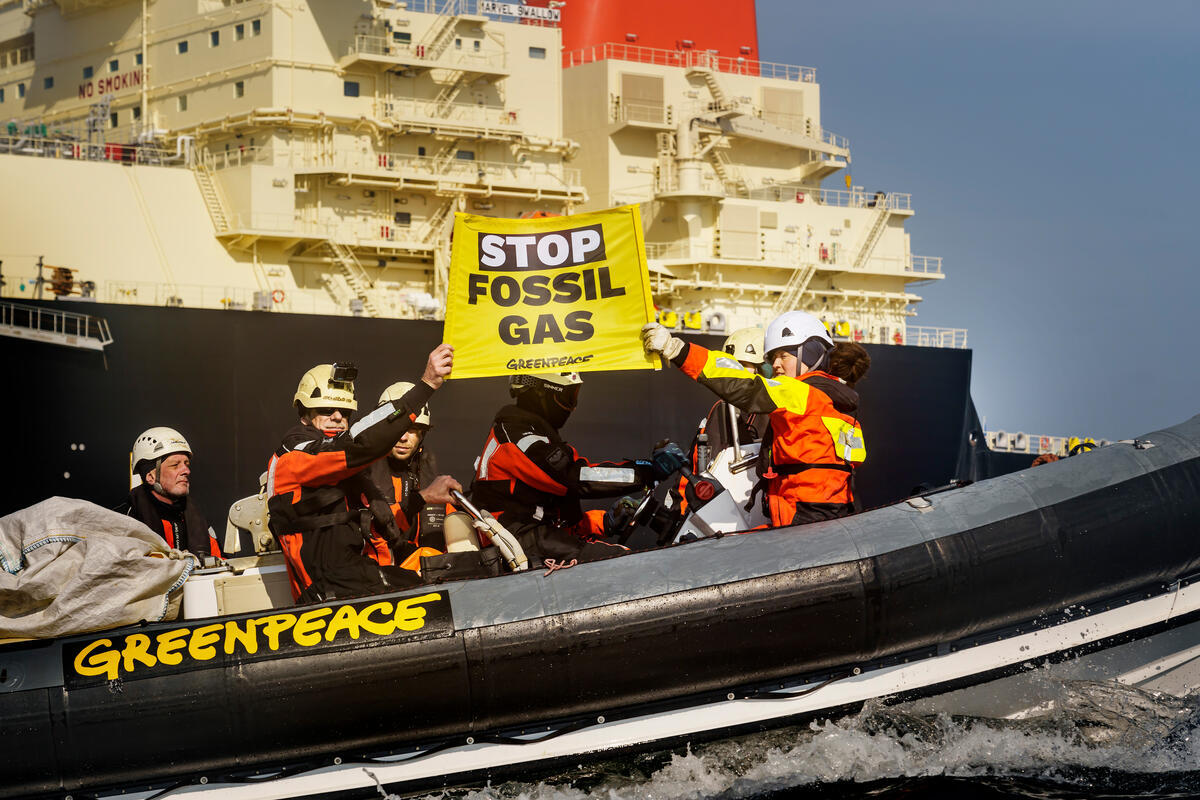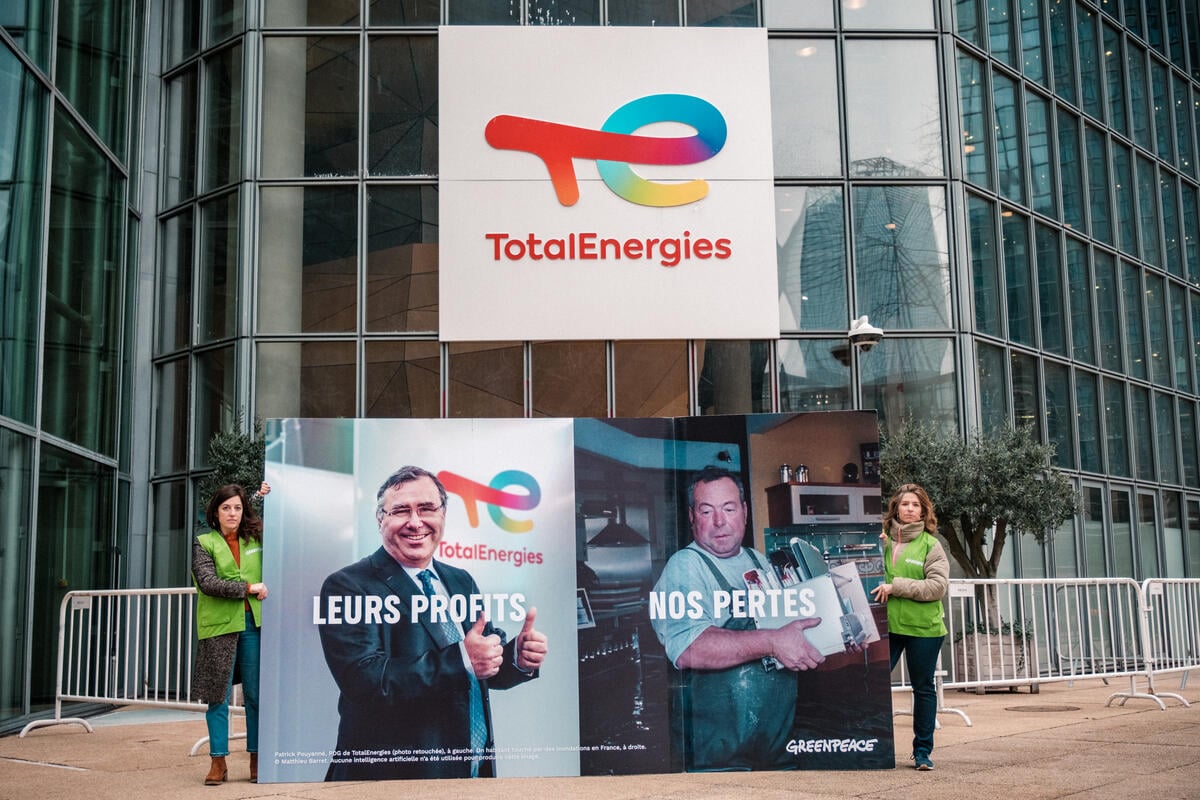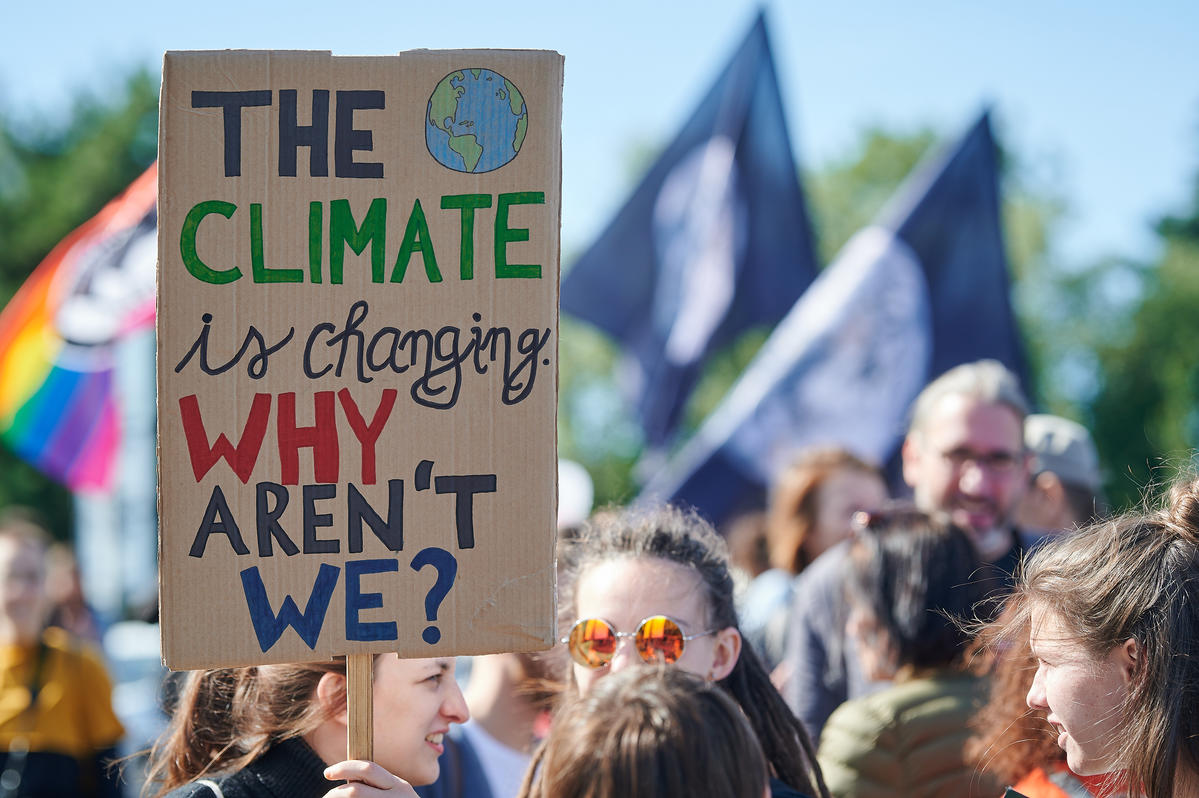
The sun is setting on the oil industry.
Around the world, people are standing up against the fossil fuel industry and calling for big changes to solve the climate emergency. We urgently need more sustainable and equitable ways of powering our societies and maintaining prosperous economies.
Greenpeace is working alongside local communities in multiple countries to achieve a world beyond oil. (And not just oil: Greenpeace organizations are working in Poland and South Africa, for example, to call for a phase out of dirty coal, too).
Taking on the very powerful fossil fuel industry is no easy task. Just 100 companies have been found to be the source of more than 70% of the world’s greenhouse gas emissions since 1988. For them, the stakes are high. But with the United Nations warning us that the world is headed for a catastrophic 3-5 degrees Celsius of planetary warming if current trends continue, we’re rising to the challenge with millions more people around the globe.
Here’s a whirlwind tour of some of the places Greenpeace organizations and their supporters are taking action on a transition from oil to clean energy.
The Philippines
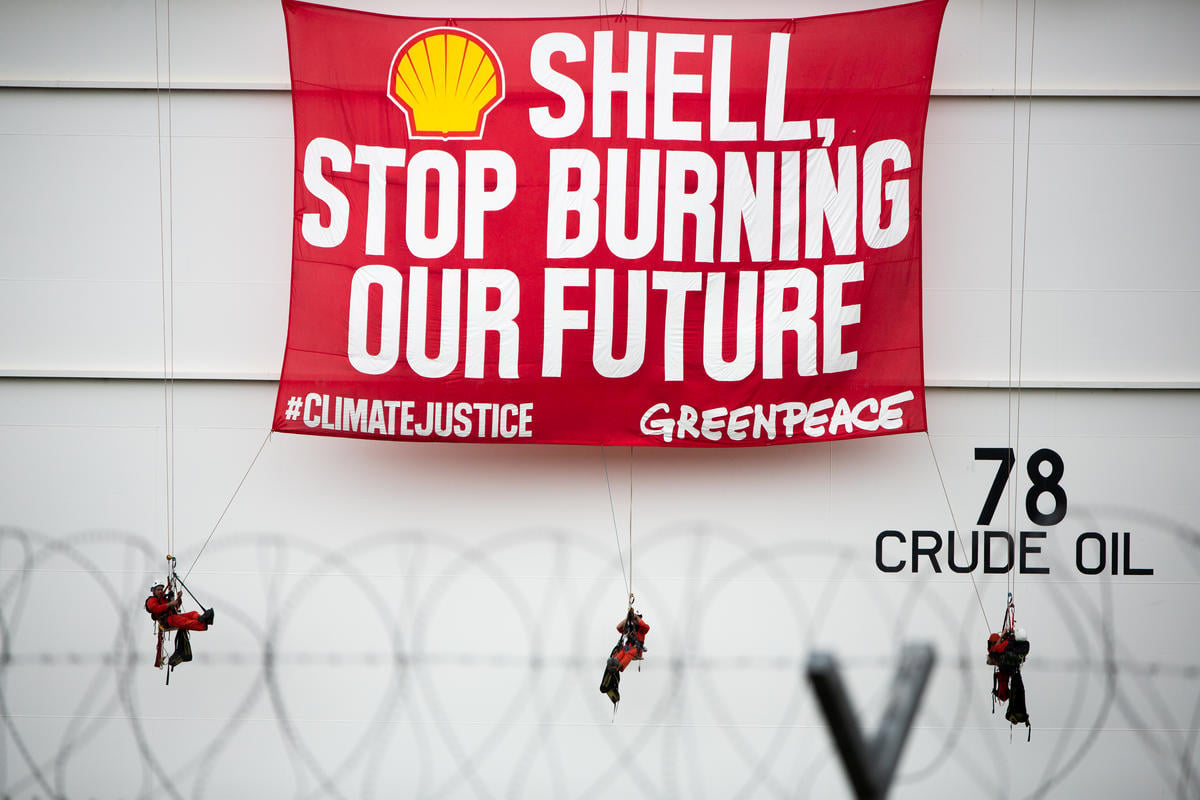
Communities in the Philippines are challenging fossil fuel companies to show accountability for their role in the climate crisis. In September, Greenpeace activists and representatives from climate-impacted communities blockaded a Shell refinery in Batangas City. Filipinos have also successfully petitioned the Philippines’ Commission on Human Rights to launch a landmark investigation into 47 major fossil fuel producers’ responsibility for climate-related human rights abuses following 2013’s Typhoon Yolanda (Haiyan), which claimed the lives of more than 6,300 people and affected millions more. The results of the investigation are expected later this year.
The United States
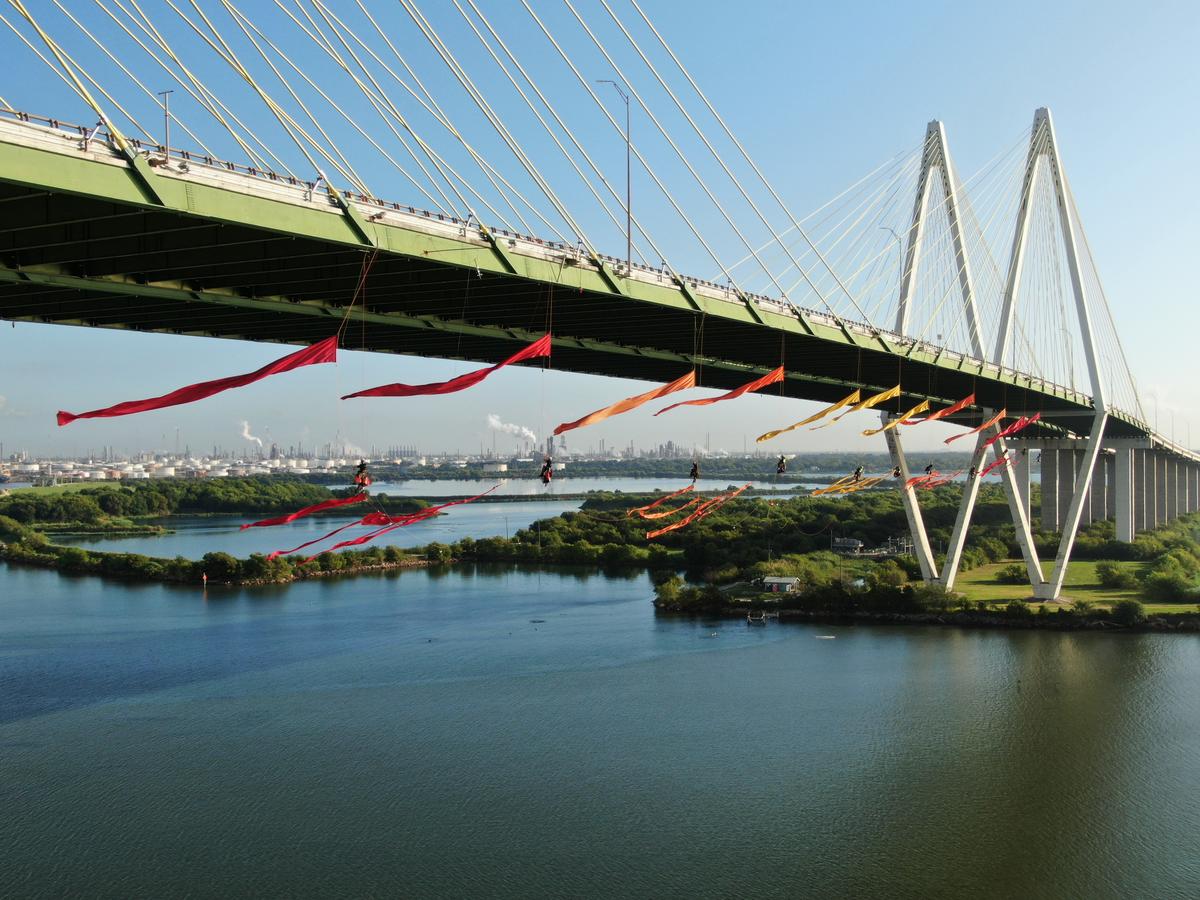
Greenpeace USA is campaigning for a Green New Deal, which includes a just transition to renewable energy, creating millions of green jobs and halting any major oil, gas, and coal expansion projects. Taking action alongside grassroots groups, Greenpeace USA has opposed new pipelines, blocked the largest fossil fuel thoroughfare in the country, and stood up against unjust, anti-protest laws pushed forward by oil companies. These kinds of laws not only intend on silencing voices, they disproportionately affect Black, Brown, Indigenous, trans, and queer people.
Australia
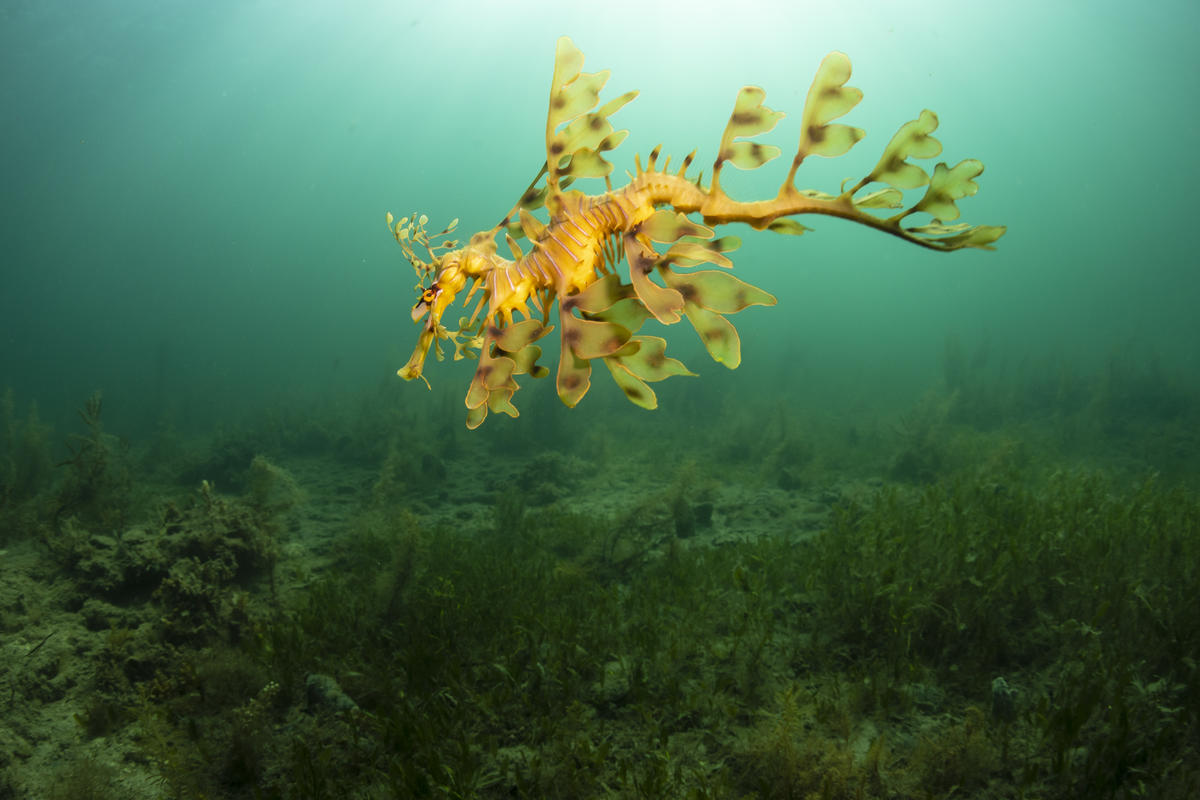
Greenpeace Australia-Pacific is campaigning to defend the Great Australian Bight, an area off Australia’s southern coast where Norwegian company Equinor has set sights on drilling for oil. The Bight is a breeding ground for endangered southern right whales and contains the Great Southern Reef, 85% of whose animals can’t be found anywhere else in the world. Exploratory seismic blasting was suspended in August and respected Elders and Nobel Laureates have called on Australia’s government to place a permanent ban on oil exploration in the area. Hundreds of thousands of people have written to Australia’s government and to Equinor to say the project will never get their blessing to drill in this treasured oceanscape.
Brazil and French Guiana
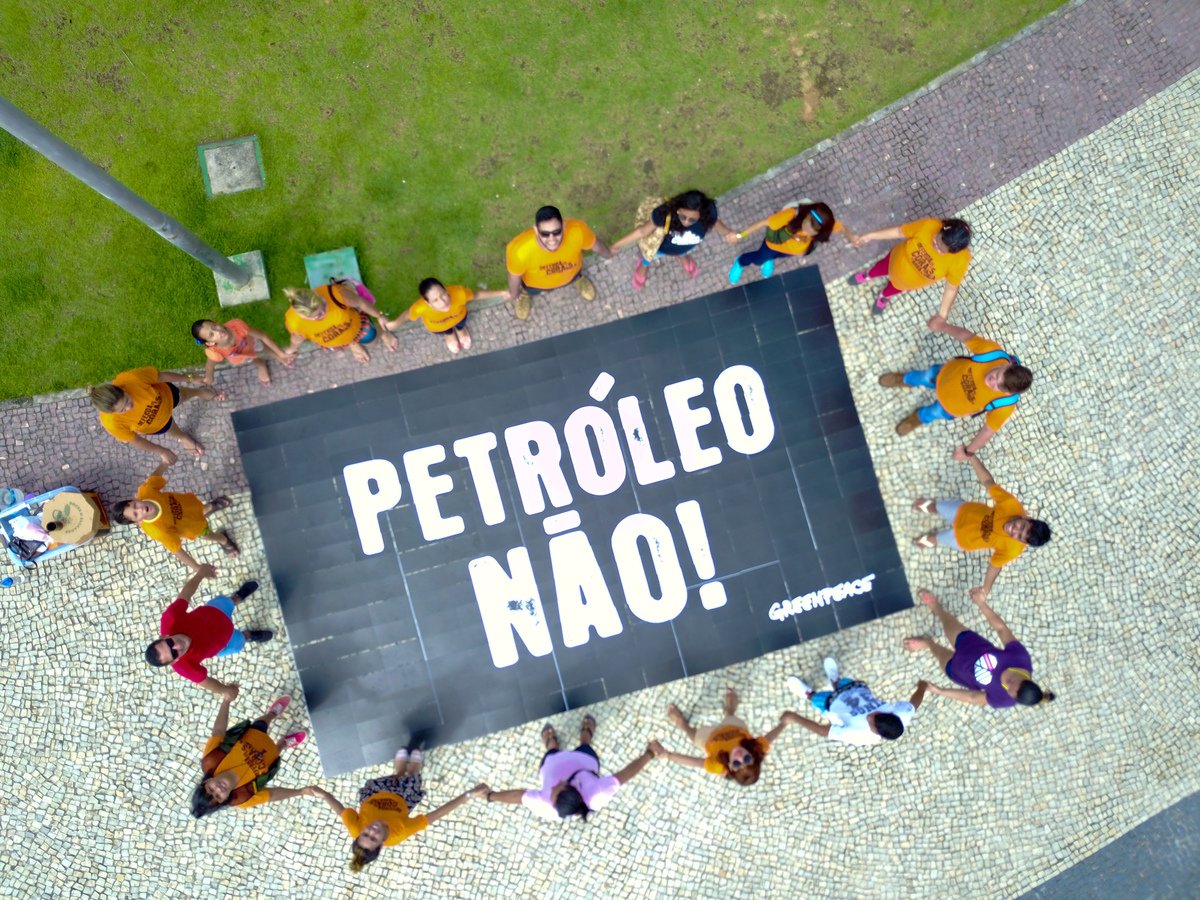
When an incredible reef was discovered at the mouth of the Amazon River between Brazil and French Guiana, it was clear to us that it had to be protected. French company Total was interested in drilling for oil, but two million people took action and Brazil’s government denied Total’s license. But now, even after this historic win, another oil company (BP) wants to open up a new oil frontier in the region and the new Brazilian government has said it’s “not impossible” for BP to get a drilling license. Greenpeace is campaigning to protect the reef from oil development.
Germany
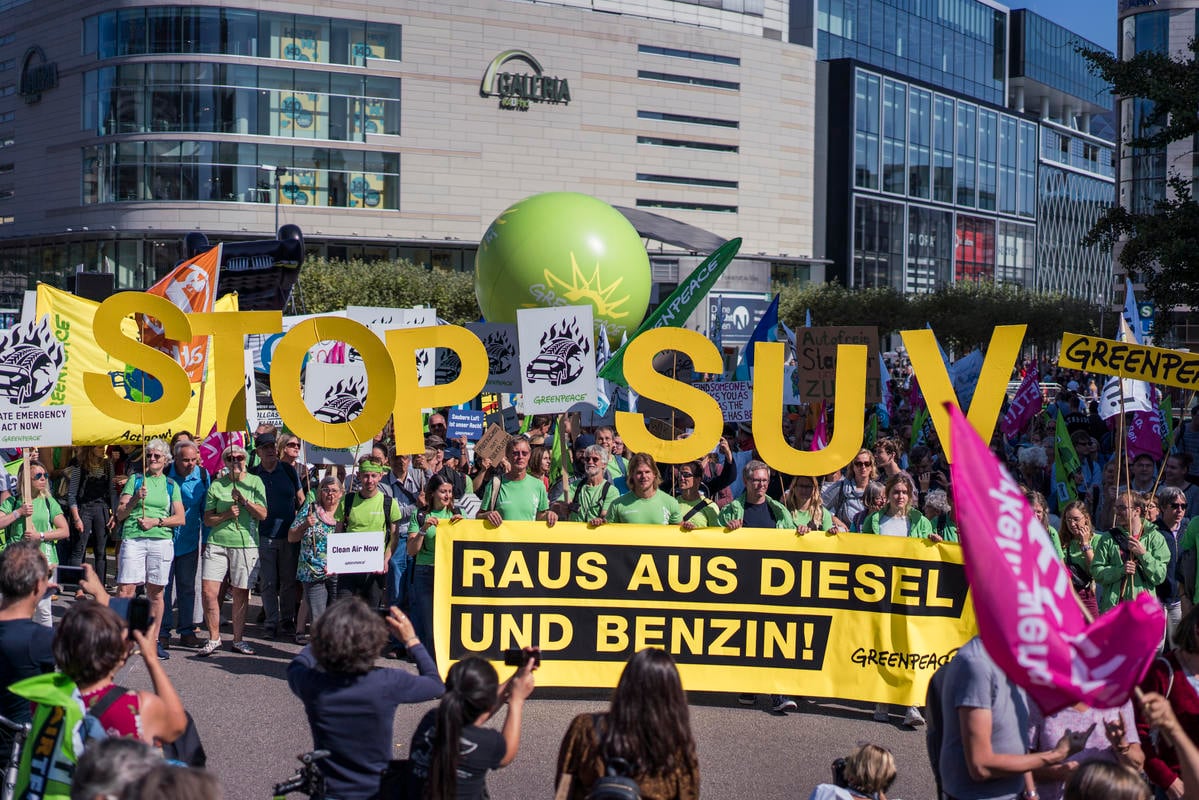
In Frankfurt, at the International Motor Show in September, Greenpeace Germany worked with other environmental and sustainable transport groups to organize a massive protest against the internal combustion engine. About 25,000 people participated (including 18,000 on bikes!), highlighting the role of the car industry in driving the climate emergency, including by lobbying against regulation. In Europe, Greenpeace is calling on automakers to phase out diesel and gas cars by 2028 and for governments to invest in renewable-powered public transport, walking and cycling infrastructure.
Russia
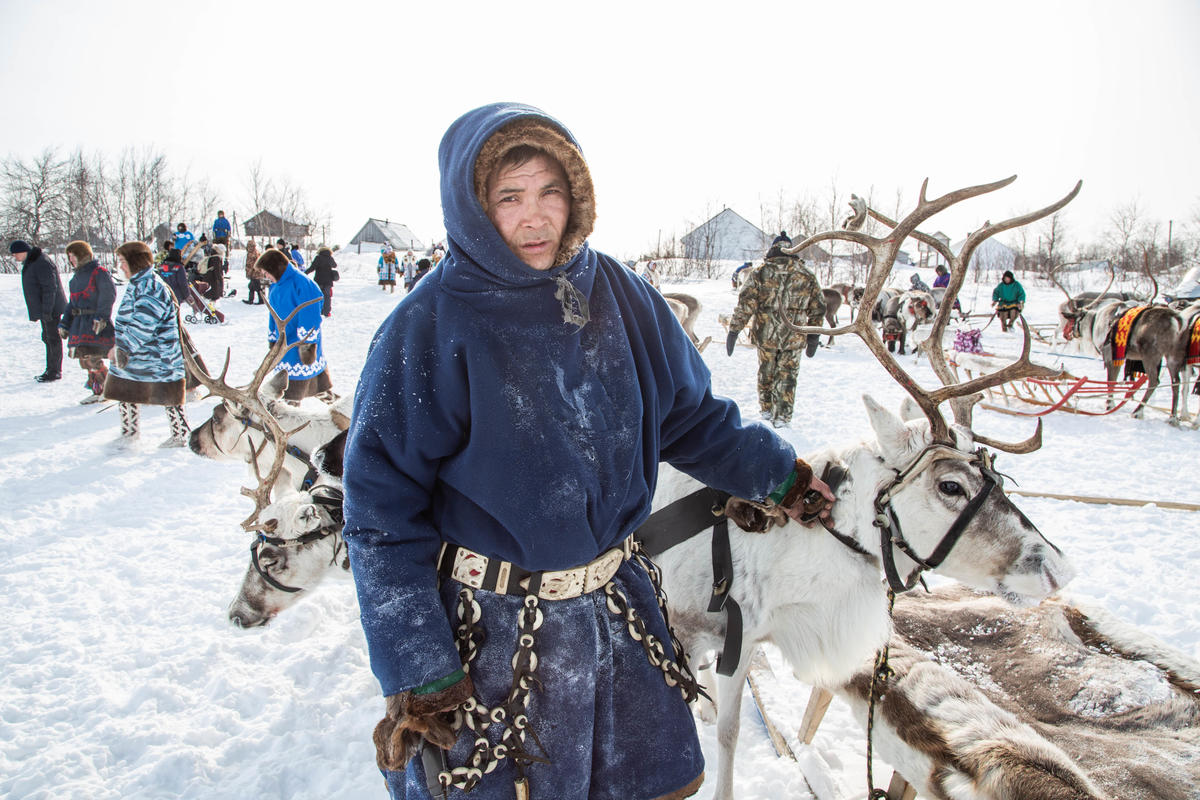
In Russia, Greenpeace is supporting Indigenous communities opposed to the impact of oil development on their livelihoods and culture. The majority of the Nenets and Khanty people in Siberia were not properly consulted when Russian oil company Surgutneftegas made plans to drill in the wetlands of the village of Numto, where many among the reindeer-herding Indigenous communities oppose the project. For the Khanty, oil extraction means wrecking the environment: heavy vehicles destroying land, possible oil spills poisoning water and fewer places for the reindeer to feed on plants or wild herbs.
Canada
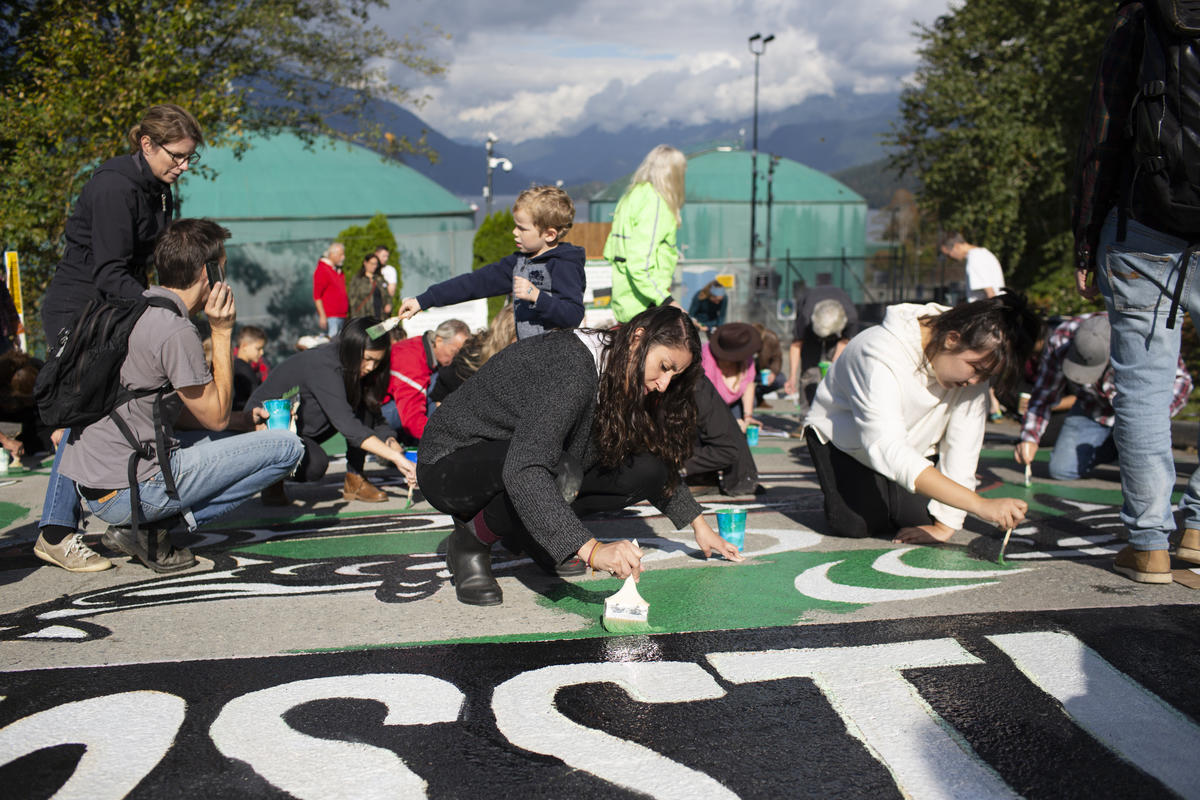
The impacts of Canada’s tar sands are globally significant. According to a study of 50 countries conducted by Stanford University, for example, Canadian oil is the fourth-most greenhouse gas (GHG) intensive in the world. Canada is also the ninth-biggest overall emissions emitter. Greenpeace has joined the fight against pipelines that would increase tar sands production and bring the toxic oil to the Pacific coast, where it would be loaded onto export supertankers — the increased traffic of which threatens marine ecosystems, including southern resident orca whales. Greenpeace Canada is supporting activists and Indigenous Water Protectors who are saying “no” to tar sands expansion, from beautiful street art resistance to a high-flying aerial blockade.
New Zealand
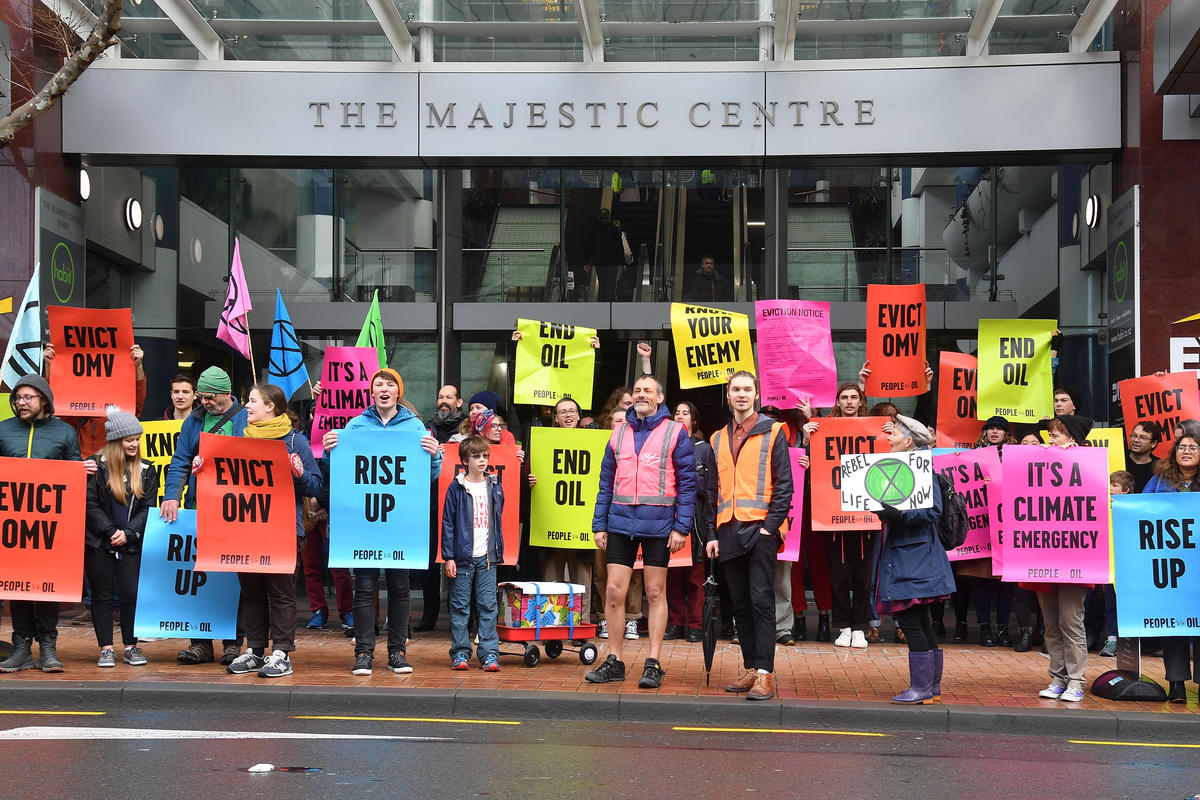
Although the New Zealand government showed great promise with their 2018 ban on new offshore oil and gas exploration permits, they did not revoke permits that were released before the ban. Austrian oil giant OMV still holds 17 permits that, if exploited, would be catastrophic for the climate and risk disastrous oil spills in New Zealand’s wild and pristine waters. Oil spills threaten the livelihoods of coastal communities, customary indigenous owners, delicate marine ecosystems, and the precious wildlife that lives in those waters. This past summer Greenpeace New Zealand activists, after a 10 hour climb on the OMV headquarters in Wellington, put out a call to New Zealanders to join in a mass mobilisation at the same location three weeks later. That call was answered by over 100 people who together handed in a petition to OMV.
Norway
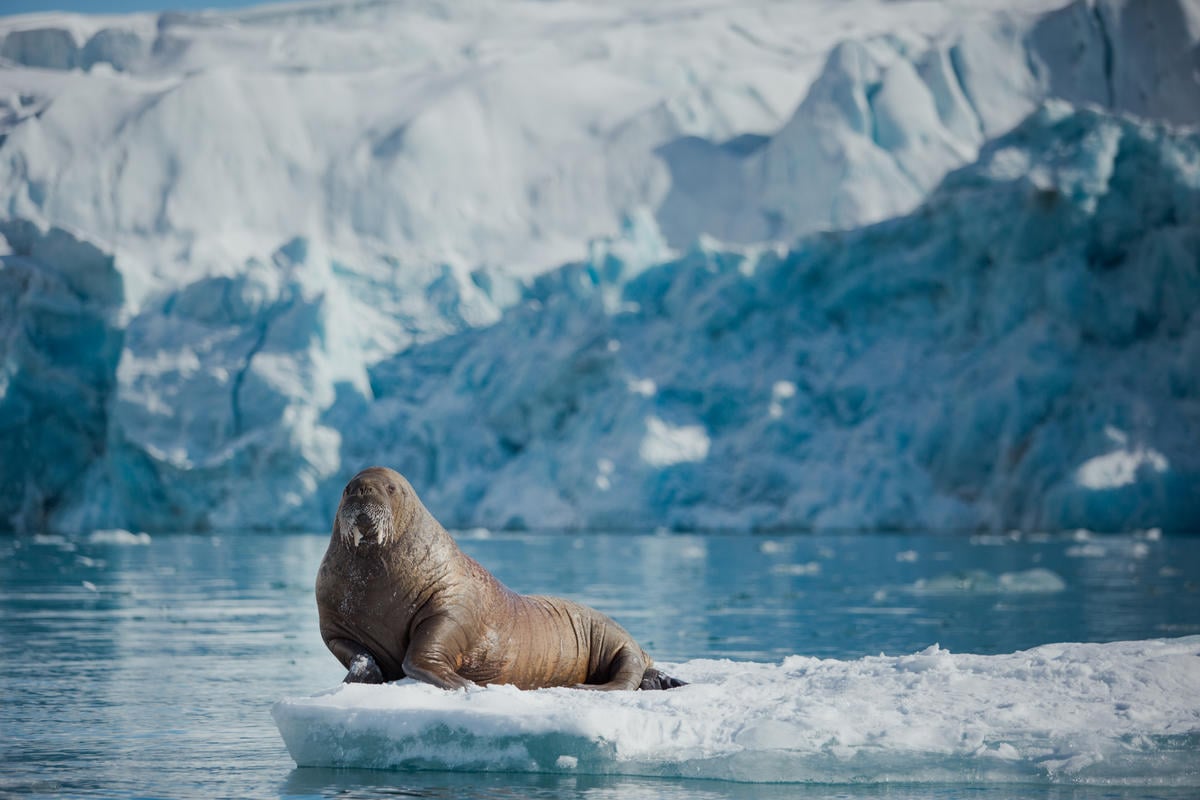
The Norwegian government is opening up a new oil frontier in the Arctic. Taking advantage of the melting ice to drill for more of the stuff that caused the problem in the first place not only goes against climate commitments, but also violates the Norwegian Constitution that says that the State shall ensure for everyone, including future generations, the right to a safe and healthy environment. That is why Greenpeace Nordic and Nature and Youth brought a case against the Norwegian Government. Oil is Norway’s biggest export, and it is burned all over the world. This makes Norway the 7th biggest exporter of climate-wrecking emissions on the planet. Greenpeace Nordic and Nature and Youth are appealing the judgement in their case against the Norwegian Government for Arctic oil drilling. The appeal case will be heard this November.
United Kingdom
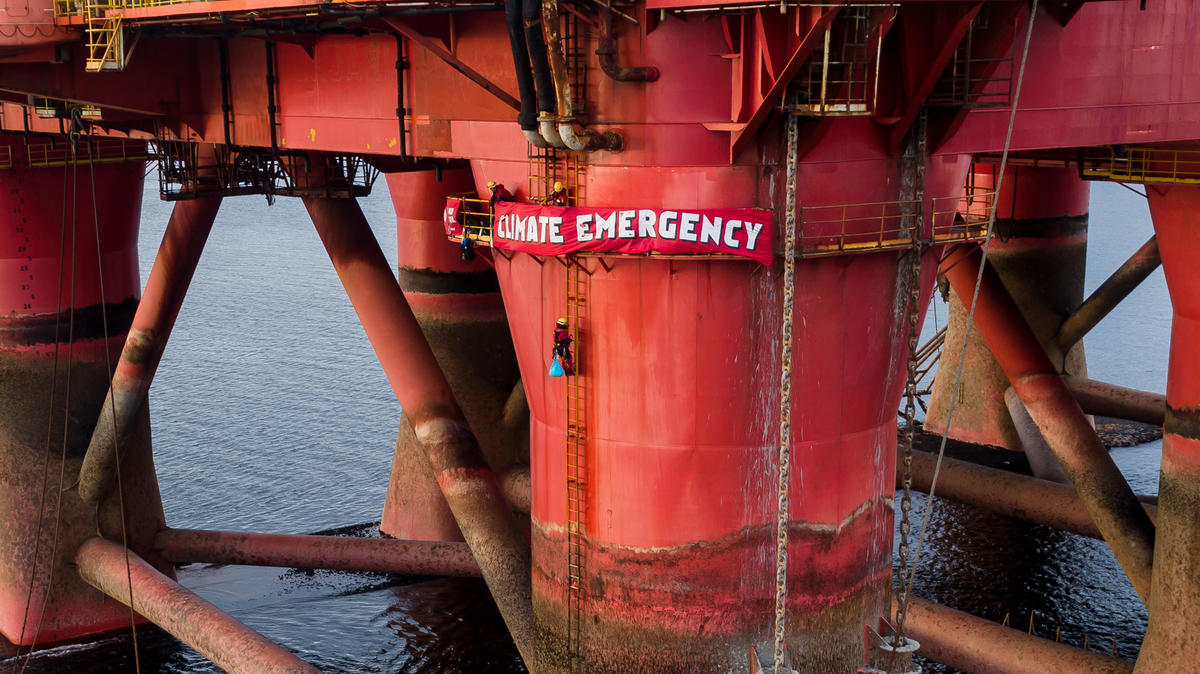
Despite BP’s greenwashing and rhetoric about aligning itself with the goals of the Paris Agreement, it is steaming ahead with oil extraction in the North Sea. Over the summer a 27,000 tonne oil rig off the coast of Scotland was moved into place and Greenpeace was there to make sure this behaviour would not go unnoticed. For five days three sets of Greenpeace UK climbers prevented BP’s rig from leaving the Cromarty Firth in Scotland. This was followed by a further stand off in the North Sea between the rig and the Greenpeace International ship, the Arctic Sunrise, which prevented the rig from reaching the drill site. Activists served ‘People’s Climate Injunctions’ to BP Headquarters in London and Aberdeen calling on BP and the industry to “immediately end the search for new fossil fuels and start a rapid and just transition to become 100% renewable energy companies”.
Taking on one of the world’s most powerful industries is no small task, but when millions of us come together, to stand for what we believe is possible, it sends a powerful message to decision makers. We are the generation that ends oil.
Jesse Firempong is a communications officer and the wildfires response lead at Greenpeace Canada.

